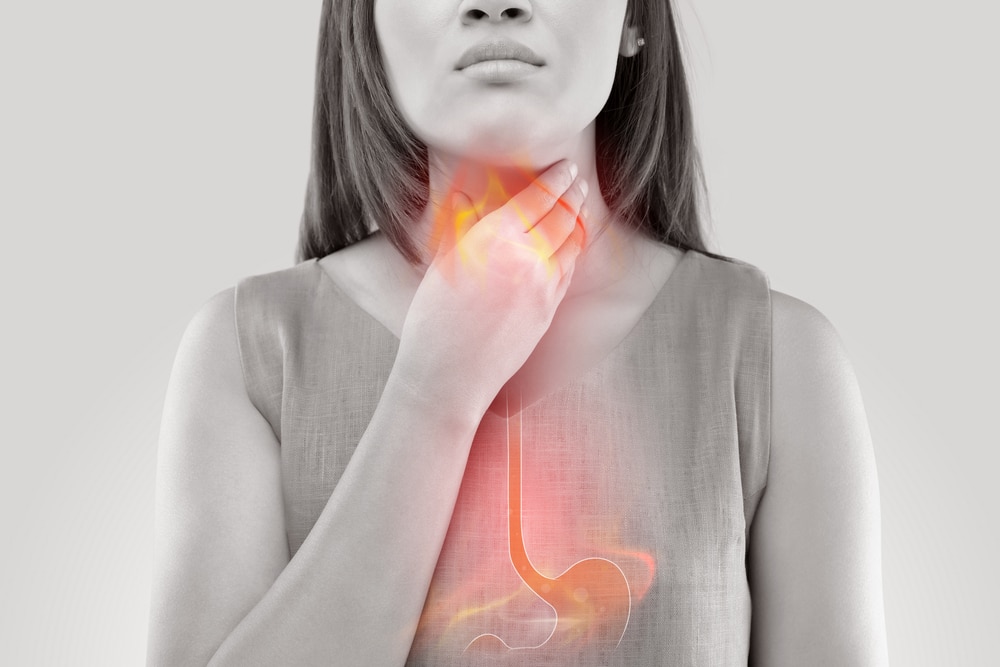Heartburn usually occurs after eating a big meal or while lying down.
Despite its name, heartburn is not associated and does not affect the heart. It causes burning pain that can cause a bitter or sour taste in your mouth. Nonetheless, it is an uncomfortable feeling someone can experience.
What is Heartburn
Heartburn is a common condition caused by the reflux or backflow of stomach acids rising into the esophagus.
The stomach’s acidic contents are needed to break down the food you have eaten, something your stomach has no trouble handling. Occasional heartburn is common and causes no alarm. With a few lifestyle changes, you can manage the heartburn. Such changes include:
- Avoid Spicy Foods. These foods irritate the esophagus, which will exacerbate the heartburn.
- Small Frequent Meals. Preferably five or six small meals throughout the day. Small frequent meals will give your stomach time to empty after eating, minimizing the pressure on the lower esophageal sphincter (LES).
- Avoid Lying Down After Eating. Lying down will keep the throat and stomach on the same level, making it easy for the stomach acids to flow up to the esophagus.
If symptoms don’t improve after lifestyle changes, there are over-the-counter medications that you can buy, or you can consult with your physician.
Your physician might recommend medications such as Antacids or Nexium. Nexium is a proton pump inhibitor that will help decrease the acid content in the stomach, relieving the symptoms. You can find available coupons on Nexium Savings Offer.

Heartburn in Women
While heart attack symptoms are technically the same in men and women, women may experience pain differently than men. This difference in pain may cause women to underreport or ignore the symptoms.
Although, if you are pregnant, it is a normal occurrence, typically during the second or third trimester, in pregnancy due to the pregnancy hormone called progesterone.
This hormone causes relaxation to the esophageal sphincter, which allows the digested food and acids in the stomach to backflow towards the esophagus.
Furthermore, progesterone also slows the digestive process, which keeps the food in the stomach longer.
Heartburn vs. Angina vs Heart Attack
Heartburn is related to the esophagus. However, due to the esophagus’s anatomical position, which is located near the heart, many people mistake heartburn for angina and heart attack (myocardial infarction). Especially in women because the most common heart attack symptom is chest pain.
One of the heartburn’s symptoms is chest pain, a burning sensation at the base of the sternum, just behind the breastbone. This burning sensation may sometimes radiate to your neck, throat, or jaw. The burning sensation can be mild to severe.
On the other hand, chest pain of angina and myocardial infarction are similar in quality and located in the center of the chest, which has uncomfortable pressure, squeezing fullness, or pain that sometimes you might have a cold sweat. Although myocardial infarction is usually more intense and severe and lasts longer than angina, the pain occurs at rest. In angina, chest pain usually occurs with activity or stress.
Symptoms Accompanying Heartburn
Heartburn symptoms are easy to recognize and monitor. However, you should be keen and observant to note the changes in these symptoms and if other symptoms are accompanying them.
Never-Ending Heartburn
If you have heartburn every day or at least twice a week, you may have gastroesophageal disease, known as GERD. It is a digestive disorder that affects the lower esophageal sphincter. Repeated stomach acid reflux can damage the esophagus if the lower esophageal sphincter loses its strength, leading to more severe complications such as Barrett’s esophagus.

Severe Stomach Pain
You may have gastritis if you have heartburn and severe abdominal pain. Gastritis occurs when your stomach lining gets swollen and inflamed.
Your physician may order a procedure to view the inside of your body to assess the scope of the damage to the stomach lining.
Persistent Hiccups or Coughing
Hiatal Hernia may occur when you have heartburn with tenacious coughing or hiccuping. Hiatal Hernia is a condition in which a part of the stomach protrudes into the chest through a hole in the diaphragm. The diaphragm has a small opening through which the esophagus passes. If the stomach protrudes through this opening, it can cause severe heartburn.
Extreme Nausea or Vomiting
Nausea and vomiting are general symptoms associated with many diseases. It happens due to the regurgitation of the stomach’s contents, which may often result in a sour taste that causes some people to feel nauseated. However, it can also indicate a heart attack if you have extreme nausea and vomiting to the point of losing appetite.
The Bottom Line
Heartburn is a common annoyance that is usually harmless. However, continuous and nonstop heartburn could indicate a severe and more significant medical emergency problem. If you are unsure or the heartburn you experience now interferes with your activities of daily living, contact your doctor immediately.




